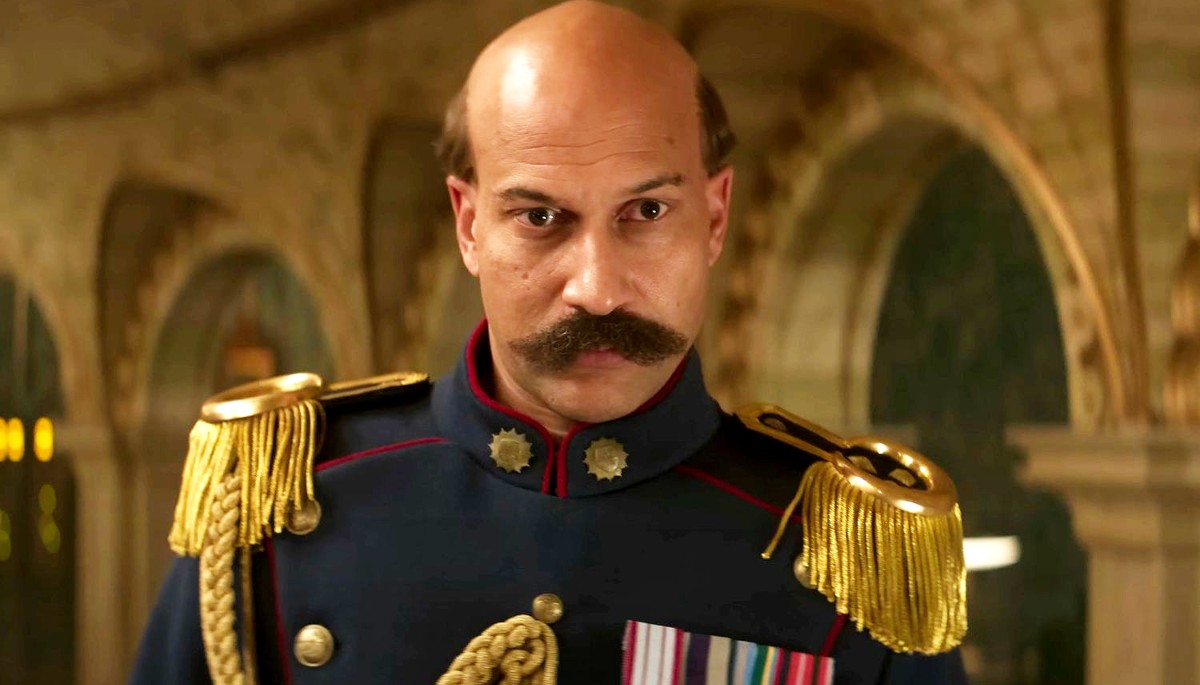‘Wonka’ Upholds One of Roald Dahl’s Most Tasteless Traditions

Wonka premiered in theaters on December 15, and while it has received high praise, there’s one glaring problem: The film upholds Roald Dahl’s history of fatphobia.
Wonka is inspired by Dahl’s 1964 novel Charlie and the Chocolate Factory and tells the origin story of Willy Wonka (Timothée Chalamet). While viewers were a bit skeptical of this cheery villain origin story, the movie surprised us all by being quite enjoyable. The soundtrack is delightful, the premise is imaginative, and Chalamet blows audiences away as the quirky, whimsical chocolatier. Additionally, like its predecessors, it avoids the most problematic content from Dahl’s original story.
While Dahl is known for writing some of the most imaginative and beloved children’s stories, it is also well-known that he was not a very good man. Many of his books have racist, misogynist, and fatphobic content. Since Charlie and the Chocolate Factory was first adapted into a film in 1971, filmmakers have retconned the Oompa Loompas’ origins and appearance to avoid the racial stereotypes they initially embodied. Similarly, many of his books have been edited to remove the blatant racism, fatphobia, and misogyny for modern readers.
Unfortunately, both prior film adaptations of Charlie and Chocolate Factory maintained Dahl’s fatphobic depiction of Augustus Gloop, the heavyset kid who is meant to represent gluttony. Since Wonka is a prequel set before Augustus’ time, there was hope that this would be the first adaptation without fat jokes. However, the film found another way to work in Dahl’s tradition of fatphobia.
Did Wonka really have to bring in the fat suit?
Wonka includes a very unnecessary story arc for one of the primary villains, the unnamed chief of police (Keegan-Michael Key). The chief is bribed with chocolate to do the chocolate cartel’s bidding, which includes preventing Wonka from selling chocolate. While the chief is initially reluctant to do the cartel’s dirty work, he eventually agrees when they sway him with astonishing amounts of chocolate to satisfy his sweet tooth. As the crusade against Wonka turns lengthy, the chief keeps demanding more and more chocolate from the cartel. It’s not long before his overindulgence in chocolate leads to weight gain.
This, in turn, leads to Key donning a fat suit to reflect the chief’s weight gain. In fact, he ended up in multiple fat suits, as every time the chief appears throughout the film, he gets bigger. At one point, he comments on how he gained 150 pounds in two days. Meanwhile, his craving for chocolate continues intensifying, forcing the cartel to use a crane to transport the chocolate they’re paying him with. Wonka takes every opportunity to exaggerate his weight to the point that it gets tiring. When he drops to one knee, it’s with a resounding crash that seems to shake the whole city. In another scene, he gets stuck inside his car, sitting underneath a pile of chocolate wrappers.
When I saw the film, the theater was silent during every one of these scenes. Not only are the scenes unnecessary, but they’re also not funny. At some point, Hollywood needs to move past the idea that fat jokes and stereotypes are comedic. After all, Dahl wrote Charlie and the Chocolate Factory in 1964. While his fat jokes might have garnered a chuckle back then, times have changed enough that most audiences prefer more sophisticated humor. Sure, there may be some fatphobic viewers who will enjoy the scenes, but why risk alienating the vast majority of audiences to appeal to some closed-minded minority?
In addition to the fat jokes, the chief meets most of the fat character stereotypes in TV and film. It doesn’t seem like a coincidence that the sole character in a fat suit is also the villain and not a very bright one, to boot. Unfortunately, it’s very rare for films to acknowledge or depict larger people the same way as everyone else. Some may argue that Key’s character is just a joke. However, it’s not just a joke when it’s helping perpetuate the idea that fat people are bumbling and unlikable villains who need cranes to carry the superhuman amounts of food they ingest. Anyone of any size could’ve been tempted with some decadent treats—it didn’t have to be someone in a fat suit.
The fatphobia in the Charlie and the Chocolate Factory adaptations has always disappointed me. This is because the stories delve deeply into Wonka’s love of chocolate and how desperately he wants everyone to find enjoyment and pleasure in every bite. They encourage audiences not to give up that part of childhood; when we could find so much happiness in something as small as a piece of candy.
However, the fat jokes seem to suggest that everyone can enjoy chocolate except for fat people. There’s always this idea that if heavier people enjoy food, it’s gluttonous and greedy, but a thin person enjoying that same food is perfectly acceptable. Hopefully, someday, movies—especially ones about food—won’t feel the need to regurgitate harmful fatphobic tropes.
(featured image: Warner Bros.)
Have a tip we should know? tips@themarysue.com